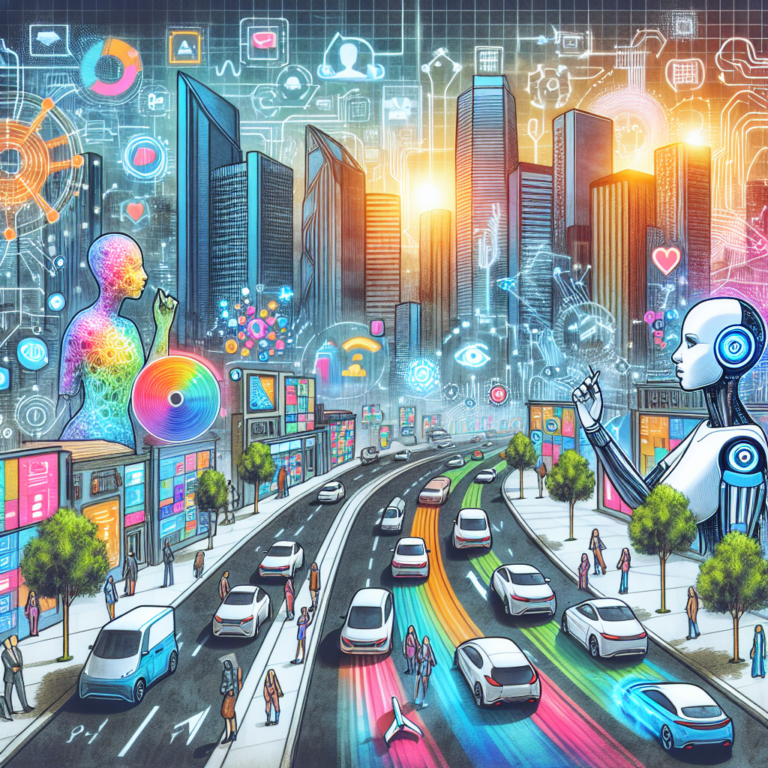Unlocking Success in Business with AI Agents: Five Key Insights
In the rapidly changing world of technology, AI agents emerge as pivotal players in enhancing business operations. A recent white paper from Google titled “Agents” outlines a visionary perspective on the future of AI, focusing on the empowering roles that AI agents can take on in workplaces. Released in September, this insightful document explores how these sophisticated systems go beyond mere data processing, engaging in reasoning, planning, and decisive action to achieve set objectives.
Authored by Julia Wiesinger, Patrick Marlow, and Vladimir Vuskovic, this comprehensive report argues that AI agents signify a transformative shift in corporate dynamics. Organizations adopting these advanced technologies could enjoy greater efficiency and productivity, while those resisting such innovations may find it hard to keep up in this evolving business landscape.
Now, let’s delve into five essential lessons from Google’s report regarding AI agents and what they mean for future business success:
1. AI Agents: A Leap Beyond Conventional Models
Google points out that AI agents represent a significant progression from standard AI models. While traditional systems like GPT-4o or Gemini effectively generate responses, they rely solely on pre-existing training data. In contrast, AI agents thrive on real-time engagement with external systems and adapt by learning continuously, enabling them to tackle multi-step tasks competently.
For example, while conventional AI can suggest travel itineraries based on existing data, AI agents can book flights, check hotel availability, and adjust recommendations dynamically based on user feedback. This adaptability turns agents into versatile digital assistants capable of managing complex workflows, making them indispensable in various sectors such as logistics and customer service.
2. Understanding the Cognitive Architecture for Smart Decision-Making
A significant factor in the effectiveness of AI agents is their cognitive architecture, which serves as a decision-making framework. This orchestration layer enables agents to process information in cycles, integrating new data to refine their responses and strategies.
Picture a chef managing a bustling kitchen; the chef collects ingredients, weighs customer preferences, and adapts recipes based on available supplies and feedback. Similarly, AI agents accumulate information and devise steps toward achieving specific goals. This sophisticated decision-making structure allows agents to act quickly, anticipating future needs rather than just reacting to past data.
3. Tools That Expand the Power of AI Agents
Most conventional AI models act as static knowledge sources, limited to their training scope. However, AI agents incorporate a variety of tools to access real-time data and interact with external systems, significantly boosting their applied usability.
Essential tools like APIs and data stores link an agent’s internal capabilities to the external world. For instance, an agent organizing a business trip could use APIs to verify flight schedules, consult a data store for travel policies, and utilize mapping tools to identify nearby accommodations. This level of dynamic interaction transforms agents into active contributors in business operations.
4. Augmenting Intelligence Through Retrieval-Augmented Generation
A significant innovation in the realm of AI agents is the use of retrieval-augmented generation (RAG). This method allows agents to tap into external databases or documents when their own training does not provide adequate information.
By accessing fresh data stores, agents can present contextually relevant responses. For instance, in the finance sector, an agent might retrieve up-to-date market data to guide investment suggestions. In healthcare, it could fetch the latest research to support diagnostic decisions. This strengthens accuracy, greatly reducing the chances of misinformation or “hallucinations”, ensuring agents communicate trustworthy and precise data.
5. Google Tools: Facilitating the Adoption of AI Agents
The white paper provides not just technical insights but practical advice for businesses eager to adopt AI agents. Google emphasizes two main platforms: LangChain and Vertex AI. LangChain, being an open-source framework, simplifies the development process for agents, allowing developers to combine reasoning protocols with tool interactions seamlessly. On the other hand, Vertex AI provides a managed space that eases the deployment of agents, complete with testing and performance assessment features.
These tools significantly lower the entry barriers for companies interested in AI agents but lacking deep technical knowledge. However, as AI agents grow in sophistication, companies will need to consider the implications of widespread automation—balancing efficiency gains with essential concerns like ethical decision-making and dependency risks.
Google’s exploration of AI agents shines a light on an exciting future for artificial intelligence in business. For organizations, the takeaway is clear: AI agents are no longer just theoretical tools but practical solutions designed to revolutionize business operations.
Embracing AI agents requires thoughtful planning, experimentation, and a shift in mindset regarding conventional workflows. Companies willing to invest time in comprehending and implementing these sophisticated systems could unlock significant advantages over competitors, while those that hesitate risk being left behind in an increasingly automated landscape.




0 Comments